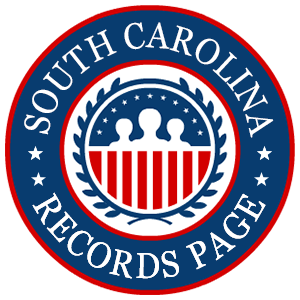Find South Carolina divorce records hassle-free and at no cost with the guidance provided below.
Several record custodians host divorce-related documents and information throughout the state.
Typically, divorce records may be reviewed via online databases or by making a request with the proper state or local government agency. This resource will help members of the public find out how to find divorce records.
Follow the guidance below to learn how to search for free divorce records in South Carolina.
Who Can View Divorce Records in South Carolina?
The South Carolina Freedom of Information Act guarantees a person the right to inspect or copy any public record unless exempted by other state law or if the person is ineligible because of their criminal record.1
South Carolina law also states that copies of divorce reports must be issued to the following individuals upon request:
- The parties divorced
- Their children at least 18 years of age
- A current or former spouse of either party divorced
- Legal representative
- Department of Social Services to prove paternity or modify or enforce a child support obligation
In addition, if a person is unrelated to the parties in the divorce and does not have a personal or legal interest in the parties to the divorce, they may still be provided with a statement that the divorce occurred. This means that although a person may not be eligible to obtain a copy of a divorce decree, they can still obtain a divorce certificate.
A decree is the official court ruling handed down after a divorce is finalized. A certificate is a statement that the divorce occurred.
The United States Census Bureau provides divorce rates for South Carolina. As recently as a 2022 survey suggests that an estimated 10.1% of the adult population is divorced in South Carolina.
How To Search for South Carolina Divorce Records Throughout the Entire State
The best way to search free divorce records is through the South Carolina Department of Social Services.
The South Carolina Department of Social Services is a state agency tasked with assisting and strengthening families. Because of their duties, they often connect with state Family Courts to assist in resolving family law disputes.
Their Family Court Public Access database contains family court records for anyone to view for free.
Users only need to input an individual’s last name, and select divorce under the case category to obtain divorce case results. It should be noted that results will fail to display if they exceed 500 cases. So, users should narrow the search by also inputting an individual’s first name and selecting the county where the divorce took place, or time period when the divorce took place.
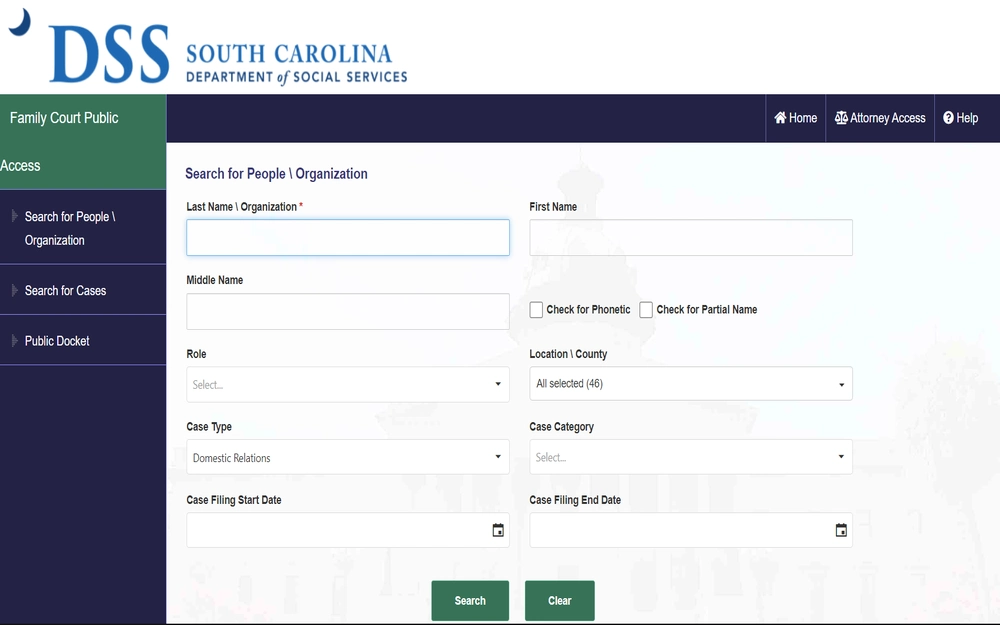
Once results are generated, click on the case number to dive deeper into the details of a particular divorce case. The details will inform researchers about many details, including:
- Parties
- County Court Location
- Case Status
- Court Dates
- Attorneys
- Case History
If you have questions concerning the free public divorce records search, contact the SC Department of Social Services:
South Carolina Department of Social Services
1535 Confederate Ave.
Columbia, South Carolina 29201
Phone: 803.898.7601
Those interested in obtaining certificates may do so through the South Carolina Department of Health & Environmental Control (SCDHEC). Interested persons may obtain divorce records through SCDHEC in person, by mail, by drop off, and online.
To obtain divorce records in person, a person must complete the application form and fill out the top introductory portion and the divorce/annulment portion. They must also provide a valid government, employer, or school photo ID, along with a $17 search fee. All additional copies are $3. The same day processing time is generally 30-45 minutes.
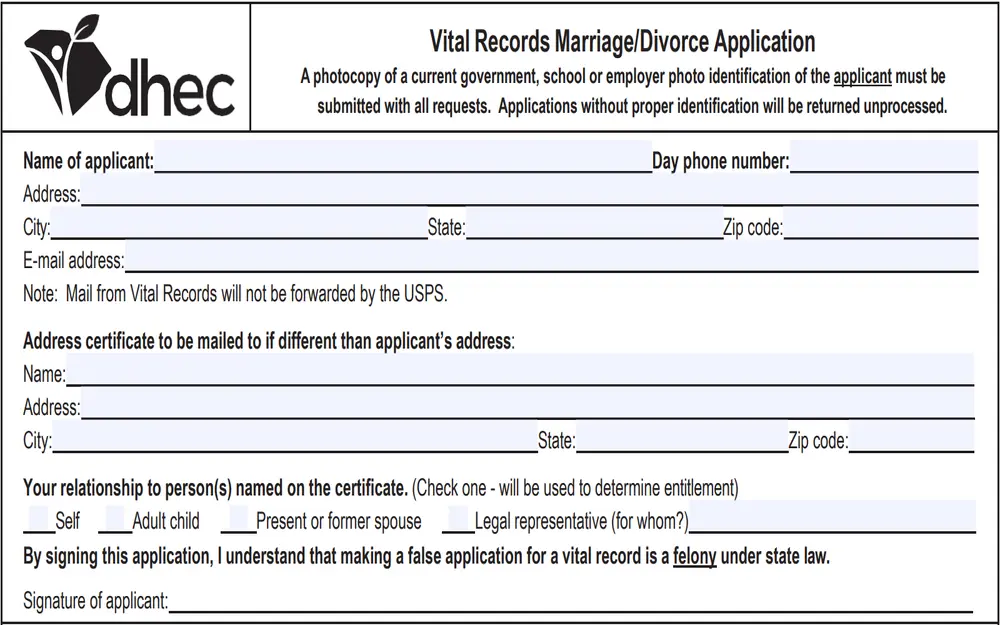
Visit the SCDHEC Vital Records Office between the hours of 8:30am – 5:00pm Monday – Friday to obtain divorce records in person:
SCDHEC State Vital Records Office
2600 Bull Street
Columbia, South Carolina 29201
Phone: 803.898.3630
To acquire divorce records by mail, a person must also complete the application form, along with a photocopy of a valid government, employer, or school photo ID, and a $12 search fee. Additional copies are also $3. The average turnaround time is generally 4 weeks. Mail these materials to:
SCDHEC Vital Records
2600 Bull Street
Columbia, South Carolina 29201
To obtain divorce records by drop off, a person must complete the application form as explained above, provide a valid government, employer, or school photo ID, and payment of either $12 search fee for the 4 week turnaround time, or $17 search fee for the 5 days or less processing time. Each additional copy is $3.
To manage online requests, SCDHEC has endorsed VitalChek.4 Follow the prompts in the platform and pay the fees to receive a certificate.
Looking Up Divorce Records via Counties Throughout SC
In addition to using state resources to locate divorce records in South Carolina, researchers may also use county level agencies.
According to the South Carolina Secretary of State’s Office, certified copies of divorce records may only be obtained from SCDHEC, as described in the section above, or by the County Clerk of Court’s Office where the divorce took place.5
The Charleston County Clerk of Court provides clear instructions on how to obtain a decree by mail or in person.6 Interested persons must submit a written request that includes as much detailed information as possible, including the names of the parties involved and the approximated year and month the divorce took place.
The fee is $10 payable by money order to the Charleston County Family Court. Copies are $0.11 per page. The Office is open Monday – Friday 8:30am – 5:00pm.
Charleston County Clerk of Court
100 Broad St., Ste 143
Charleston, South Carolina 29401
Phone: 843.958.5000
Email: [email protected]
The Charleston County Clerk of Court also provides the public with a free court case search. Anyone can look up family court case records, including divorce proceedings. Users need to input a person’s last name and select Family Court under case type.
Once results are generated, users will be able to click on a case for additional information. You can tell its divorce because it will say so under the sub-case type heading.
The tutorial on accessing all Charleston County divorce details gives further insight into the entire process for those seeking further guidance.
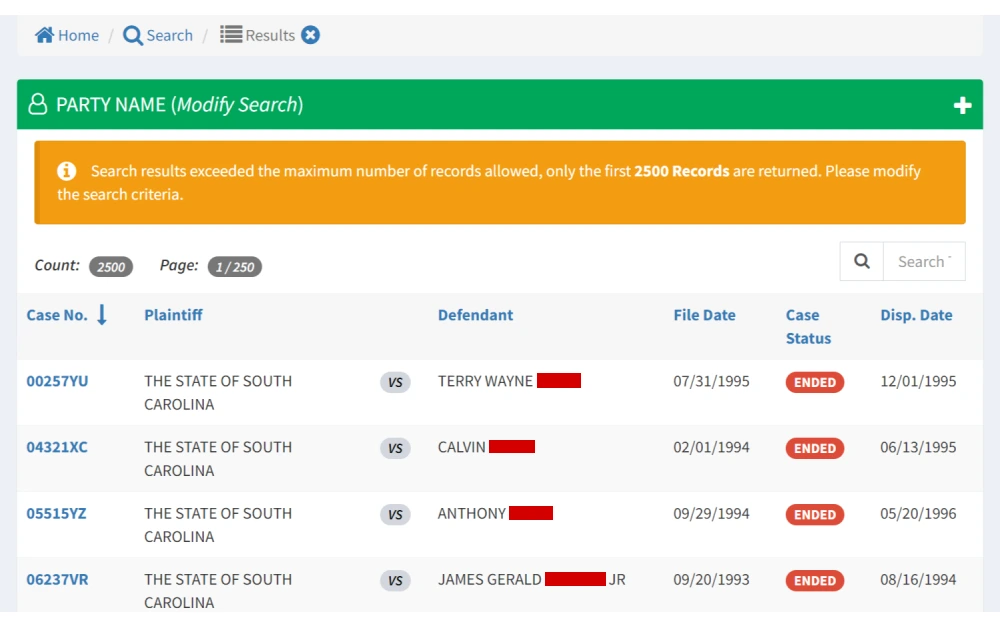
The Richland County Clerk of Court does not offer the public instructions on how to request decrees. However, they provide two numbers to contact for divorce related questions.
For divorces that occurred in 2006 to present, call 803.576.3326.
For divorces that occurred 2005 and prior, call 803.576.1952.
Richland County Clerk of Court
Richland County Judicial Center
1701 Main St., Rm 205
Columbia, SC 29202
Phone: 803.576.1947
The Greenville County Clerk of Court does not offer instructions on how to request copies of decrees, but they do offer the public a free family court search. This tool allows anyone to look up divorce cases that have occurred in Greenville County.
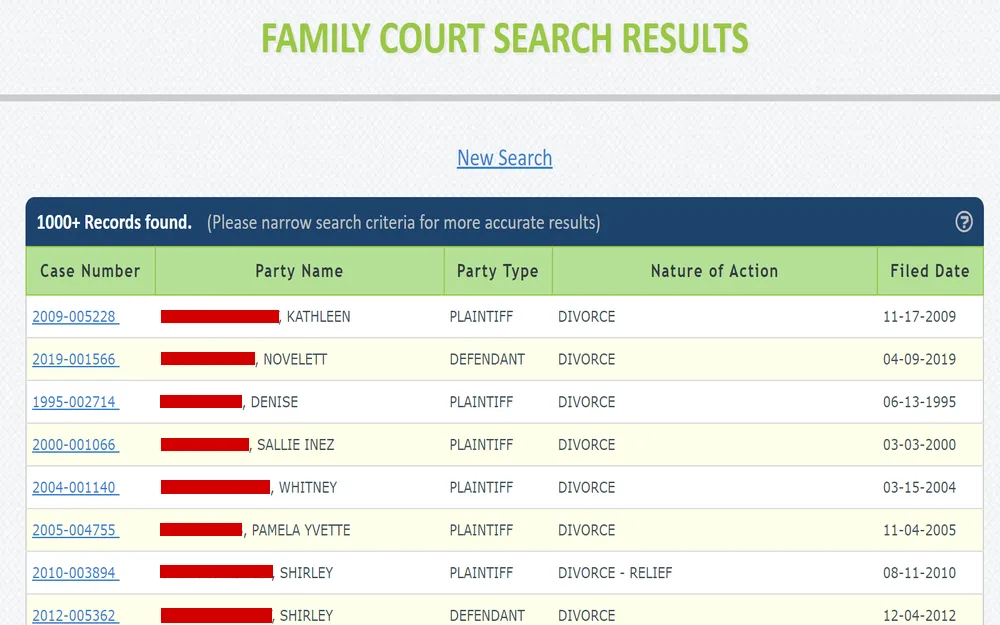
To use the search, persons must input an individual’s last name followed by a comma and then the first name. Alternatively, they can input the case number if known. Once results are shown, by clicking on the case number additional information about the case is provided, including the parties, the plaintiff attorney, and the filing date.
If you have additional questions, contact the Clerk of Court using the information below:
Greenville County Clerk of Court
350 Halton Rd.
Greenville, South Carolina 29616
Phone: 864.467.5800
Email: [email protected]
The Horry County Clerk of Court is who interested parties should contact when they want to obtain copies of divorce decrees.9 The office is open Monday – Friday 8:00am – 5:00pm. They have two locations:
Horry County Clerk of Court – Main
1301 2nd Avenue
Conway, South Carolina 29526
Phone: 843.915.5080
Email: [email protected]
Horry County Clerk of Court – South Strand
9630 Scipio Ln.
Myrtle Beach, South Carolina 29588
Phone: 843.915.5082
The Spartanburg County Clerk of Court’s Office is available to help interested persons retrieve divorce records on anyone who finalized their divorce within the county.10 The Office is open 8:30am – 5:00pm Monday – Friday.
Spartanburg County Clerk of Court
180 Magnolia Street Second Floor, Ste 500
Spartanburg, South Carolina 29306
Phone: 864.596.2591
Options for finding historical or archived divorce records throughout the state will be outlined in the section below.
Performing Free Genealogy & Lineage Research Using the South Carolina State Divorce Archives
South Carolina divorces were illegal under the state constitution until 1949. The law was amended to what it currently is today, that divorces are allowed under specific grounds.
The state does not maintain a historical divorce index. However, the South Carolina Department of Archives & History maintains a few early divorce records.11
Interested persons may use the free research room to locate historical divorce records by visiting the South Carolina Department of Archives and History between the hours of 8:30am – 5:00pm Tuesday – Friday, and 8:30am – Noon and 1:00pm – 5:00pm on Saturdays.
South Carolina Department of Archives & History
8301 Parklane Rd.
Columbia, South Carolina 29223
Phone: 803.896.6196
They also offer a free archived document search, but it is unclear whether this search will provide divorce records.
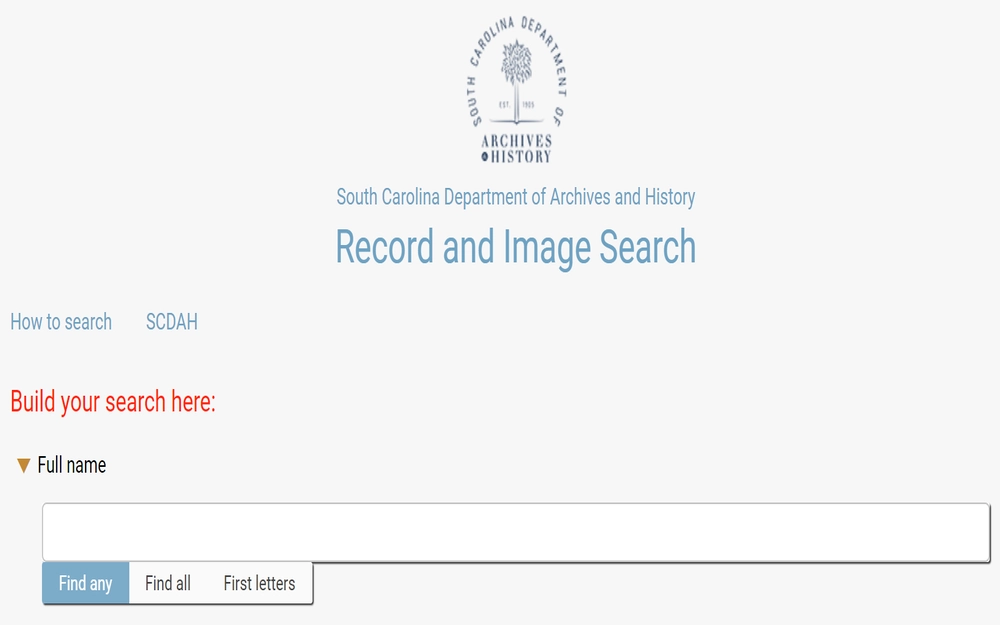
The South Carolina Department of Health & Environmental Control allows members of the public to purchase divorce records between July 1962 to the present. In South Carolina, divorce records from between 1950 – 1962 must be obtained from the Clerk of Court in the respective county where the divorce took place.
Does South Carolina Legally Allow for Common Law Marriages & Divorces?
Under South Carolina state law, marriages contracted without a license shall not be rendered illegal.13 This effectively means that common law marriages, which are also created without a marriage license, are not illegal.
However, the South Carolina Supreme Court issued a ruling on July 26, 2019, that no parties may enter into a valid matrimony without a license.14 This ruling was for prospective cases only, meaning that a nuptial after July 26, 2019 must be accompanied by a marriage license.
Common law marriages that occurred on or before July 26, 2019, may still be valid as long as it satisfies the test that the court created. The court stated that any party asserting they are in a common law marriage must demonstrate mutual assent to be married to the other person by clear and convincing evidence.
Courts in South Carolina will no longer consider cohabitation as a critical factor when determining the vitality of a common law marriage. They will consider other factors that have traditionally been provided as evidence in courts, including tax returns, court documents filed or signed under the penalty of perjury, introductions in the public community, contracts, and bank accounts.
There is only divorce in South Carolina. There is no such thing as common law divorce. Once parties are married, they may be divorced based on legally approved grounds. So, in the event of a common law marriage that occurred prior to the Supreme Court ruling on July 26, 2019, once parties prove the validity of the marriage, they may get a divorce.
These are the laws on common law marriages and divorces in South Carolina to date. Although the codified laws are in stark contrast to the Supreme Court ruling, the public will have to wait and see if the state legislature will address the differences.
How To View Dissolutions of Marriage & Common Law Divorces in South Carolina
As mentioned in the section above, common law marriages were legal in South Carolina until 2019. Although there is no separate common law divorce, divorces to common law marriages that were recognized in the state may be found.
The South Carolina Department of Social Services allows members of the general public to view Family Court case records, including divorces. The South Carolina Department of Health & Environmental Control (SCDHEC) provides divorce records services for individuals looking to obtain records from events that occurred in 1962 to the present.
Alternatively, interested persons may contact the county clerk in the county where the divorce took place. Any of these methods will assist researchers looking to view dissolutions of marriage in South Carolina.
How To Apply for a Divorce & Respond to Divorce Papers in South Carolina
When a soon to be ex-wife or ex-husband are served with divorce papers they may not know what to do. That’s why it’s important to understand the divorce process in South Carolina.
Before a divorce is initiated by the filing party, called the plaintiff, they must ensure that both spouses meet the residence requirement.15 The requirement states that both spouses must be residents of South Carolina for at least three months up to the filing.
If one of the spouses has not been a resident for three months, then the other spouse must have lived in South Carolina for at least a year before the filing.
The cost for filing for divorce in South Carolina is $150.
Once that is determined, the plaintiff must file a divorce complaint and summons, that includes the legal grounds for the divorce, with the county Family Court. This complaint must be served to the other spouse.
If they live in South Carolina but the plaintiff does not, the filing must be with the Family Court in the county where they live. If they live out of state but the plaintiff lives in South Carolina, the filing must be in the county where the plaintiff lives. Also, if they both live in South Carolina, filing can be in either county.
There are two types of divorces in South Carolina – contested and uncontested. An uncontested divorce is generally a no-fault divorce, where each party agrees on how to divide the property, custody, visitation, etc. Contested divorces require a trial, where each party presents their case for what they believe is just concerning marital property, children, adoption, finances, and alimony.
It is not a requirement for people to go through mediation or get a divorce appraisal prior to reaching any agreements to the divorce. Although more costly, some people may find that these procedures assist in shortening the length of time the divorce will take, which is generally 3-6 months.
There are various ways to review or obtain public divorce records. Whether through county or state agencies, these records are available to you. By following the guidance found throughout this resource, you can effectively view or acquire South Carolina divorce records.
Refer to the SC marriage record lookup overview or the South Carolina free public record search tutorial for insight on accessing those types of information, respectively; public records include property ownership details, births, deaths, court case documents, criminal histories, background checks, and more.
References
1South Carolina Legislature. (n.d.). Code of Laws Title 30 – Public Records, Chapter 4. Retrieved November 14, 2023, from <https://www.scstatehouse.gov/code/t30c004.php>
2South Carolina Department of Social Services. (n.d.). Public records search. Retrieved November 14, 2023, from <https://portal.fccms.dss.sc.gov/#/PublicAccessPersonSearch>
3South Carolina Department of Health and Environmental Control. (2023, September). Vital Records Marriage/Divorce Application [PDF]. Retrieved November 14, 2023, from <https://scdhec.gov/sites/default/files/Library/D-0639.pdf>
4VitalChek. (n.d.). South Carolina divorce records. Retrieved November 14, 2023, from <https://www.vitalchek.com/v/divorce-records/south-carolina>
5VitalChek. (n.d.). VitalChek Order Form. Retrieved November 14, 2023, from <https://www.vitalchek.com/order_main.aspx?>
6Charleston County Clerk of Court. (n.d.). FAQs. Retrieved November 14, 2023, from <https://www.charlestoncounty.org/departments/clerk-of-court/faqs.php#go>
7Court Plus. (n.d.). Party name search form. Retrieved November 14, 2023, from <https://www.courtplus.org/searchform?form=partyname>
8Greenville County Family Court Search. (n.d.). Family Court Public Index Search. Retrieved November 14, 2023, from <https://www.greenvillecounty.org/appsas400/FamilyCourtSearch/>
9Horry County Government. (n.d.). Clerk of Court. Retrieved November 14, 2023, from <https://www.horrycountysc.gov/departments/clerk-of-court/>
10Spartanburg County Clerk of Court. (n.d.). Clerk of Court. Retrieved November 14, 2023, from <https://www.spartanburgcounty.org/174/Clerk-of-Court>
11South Carolina Department of Archives and History. (n.d.). Research and genealogy. Retrieved November 14, 2023, from <https://scdah.sc.gov/research-and-genealogy>
12South Carolina Archives and History Foundation. (n.d.). Online records index. Retrieved November 14, 2023, from <https://www.archivesindex.sc.gov/>
13South Carolina Legislature. (n.d.). Code of Laws Title 20 – Domestic Relations, Chapter 1, Section 20-1-360. Retrieved November 14, 2023, from <https://www.scstatehouse.gov/code/t20c001.php#:~:text=SECTION%2020%2D1%2D360.,the%20issuance%20of%20a%20license>
14South Carolina Judicial Department. (n.d.). Op. 27908 – A. Marion Stone v. Susan B. Thompson [PDF]. Retrieved November 14, 2023, from <https://www.sccourts.org/opinions/HTMLFiles/SC/27908.pdf>
15South Carolina Legislature. (n.d.). Code of Laws Title 20 – Domestic Relations, Chapter 3. Retrieved November 14, 2023, from <https://www.scstatehouse.gov/code/t20c003.php>
